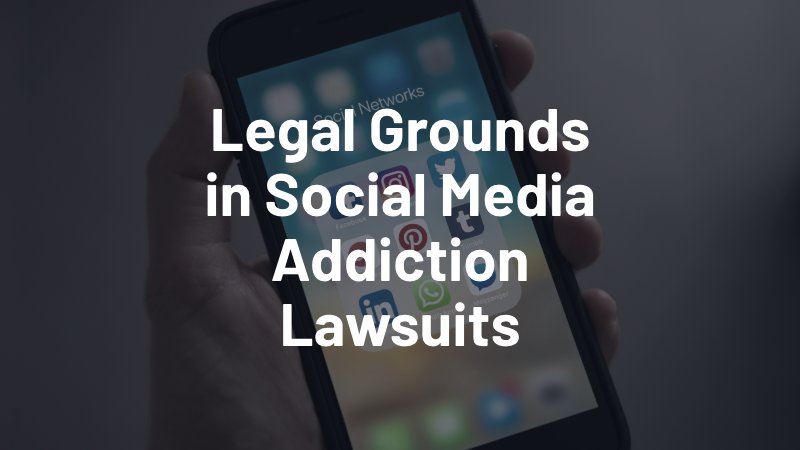Social media platforms have transformed from simple communication tools into sophisticated digital worlds designed to capture and hold your attention. As we learn more about how social media addiction affects mental health, especially among young users, families nationwide are pursuing legal action against tech giants.
These lawsuits allege that social media companies deliberately designed their platforms to foster addiction while failing to warn users about potential harm. Social media addiction lawsuits point to several features as grounds for their claims, such as manipulative algorithms, reward mechanisms, and inadequate safety measures.

Design Features That Encourage Addictive Behavior
Social media companies employ several design elements that make it easy to develop compulsive and addictive habits. For example, the infinite scroll feature eliminates natural stopping points. Algorithm-curated content constantly adapts to your preferences, creating a personalized experience that becomes increasingly difficult to disengage from. Lawsuits argue these features were deliberately engineered to maximize engagement—regardless of the potential consequences.
Rewarding Excessive Social Media Use
Many social media platforms systematically reward users for spending lots of time on the app through gamification elements, such as streaks, badges, and achievement metrics. These digital rewards create powerful psychological hooks by activating your brain’s reward pathways. Platforms track consecutive days of use and penalize breaks in activity, effectively punishing users who attempt to moderate their consumption. These tactics can particularly affect young users whose developing brains are especially susceptible to reward-based conditioning.
Recalling Users to the App with Incessant Notifications
Push notifications serve as constant triggers designed to pull your attention back to social media platforms throughout the day. Excessive alerts can create anxiety about missing content or social interactions. Many companies test and optimize notification timing to maximize response rates—and overcome users’ attempts at self-regulation.
Using Likes and Other Metrics to Exploit Social Comparison
Social validation metrics like likes, shares, and follower counts exploit fundamental human needs for acceptance and comparison. These features harness adolescents’ heightened sensitivity to peer evaluation during a critical time in their development. Social comparison metrics directly contribute to anxiety, depression, and negative self-image as users constantly measure their worth against artificial standards of popularity and approval.
Failing to Verify Ages or Implement Strong Parental Controls
Despite knowing the risks that social media can pose to younger users, many platforms fail to implement robust age verification measures and parental oversight tools. Most sites rely on simple self-reporting of age with no verification process, allowing children to easily create accounts by entering false birthdates. When parental controls exist, they often contain loopholes or are difficult to configure effectively. Children can sometimes bypass these restrictions through alternative accounts or device switching, leaving them vulnerable to harmful interactions and content.
Harmed by Social Media? Discuss Your Legal Options with Estey & Bomberger, LLP
Social media companies have powerful legal departments—you need equally powerful advocates on your side. Estey & Bomberger is representing clients nationwide in this emerging area of litigation. We know how to navigate complex social media addiction cases and hold tech companies accountable for their harmful practices. Contact us at (800) 260-7197 for a free consultation and learn more about your options for compensation.
